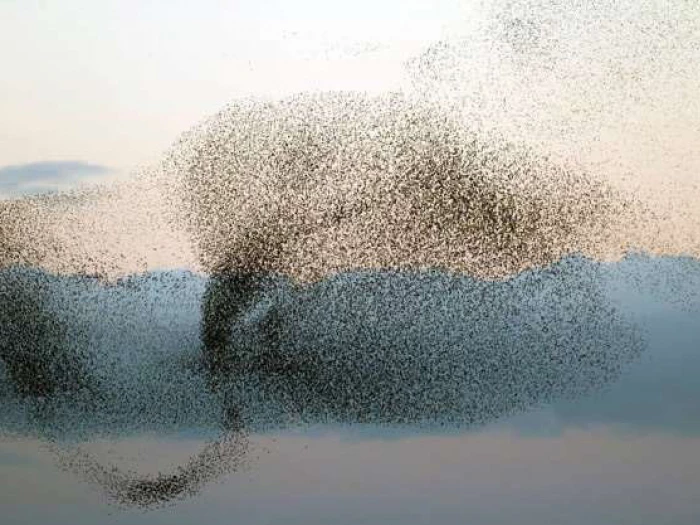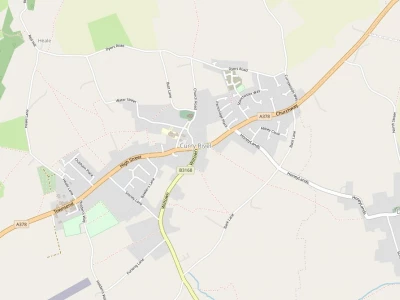Nature and Wildlife
Blowing On The Wind?
from our Nature and Wildlife Correspondent, Sally Worby
With one of the wettest and windiest years on record, 2023 appears to have been particularly mild and wet; perhaps it's time to rethink snowy scenes on Christmas cards?
Winter migrants lift our spirits on muddy walks; groups of fieldfares catch the light as they lift from fields then land together in a tree top before moving on with their "Chup chup chup" contact calls. Redwings, smaller and more delicate with pale eye-stripe and red underwing, are sometimes part of the flock.
Wet fields provide high protein invertebrates to eat but hard frosts drive these visiting thrush species and other birds to hawthorn, blackthorn and other berries, even the less palatable ivy. Careful management of hedges helps leave vital winter berries for birds.
Travelling and feeding in a group works well when food is patchy but dense. Many eyes spot food or danger and some birds also sleep together for warmth. Evening sees small flocks of starlings joining others at roost sites eventually creating dramatic murmurations before settling down in reed beds.
Birdboxes are often used by tiny birds for roosting. Long-tailed tits and wrens have large surface areas and small volumes, this coupled with high metabolic rates make long cold nights hard to survive so snuggling up with others is a sensible strategy.
It's good to clean nest boxes out before spring but try to put them back before nightfall.
Bird down offers superb insulation and stiffer outer feathers protect from rain, except in owls whose soft ultra-quiet feathers can become wet, threatening hypothermia unless the owl can find cover. More difficult since old barns and veteran trees have become rarer.
Mild weather helps some animals but can trouble hibernators. Hibernation is a state of persistent sleep used by some mammals, amphibians and invertebrates. Body temperature falls and heart rate and other functions slow down or stop. Surviving hibernation needs metabolism to remain low. If the temperature warms too much for too long the animal can wake and use up vital energy stores. Once awake there may nothing to eat. Reports of bats, butterflies and lacewings coming out of hibernation in late December/early January are concerning.
In our gardens myriad organisms shelter under dead leaves, in old mouse holes (a favourite of bumblebees), log piles and in dead stems.
Leaving untidy patches in your garden can save lives.
If mild weather persists some birds may nest early. Blackbirds and pigeons breed at any time of the year given enough food and a failure isn't necessarily a disaster as they can try again. Other species – blue tits and warblers – depend on soft caterpillars to feed their babies, each caterpillar is a neat package of food and drink in one mouthful! Nesting before caterpillars are available can be disastrous.
If we get another 'Beast from the East' at some point it's important to replace frozen water with clean fresh and supply high energy food for birds.
Remember to clean feeders to avoid spreading disease.
We are advised not to break ice on ponds, just make a small hole to allow gases to escape to protect hibernating pond animals in the sediment.
Enjoy the winter and Happy New Year!
Sally operates the Graceful Badger Forest School in Drayton Woods with Wilderwoods and Central Somerset Outdoor Learning Partnership. For more information contact gracefulbadgerforestschool@gmail.com
Get In Touch
CurryRivelOnline is powered by our active community.
Please send us your news and views.
Email: editor@curryrivel.org.uk






